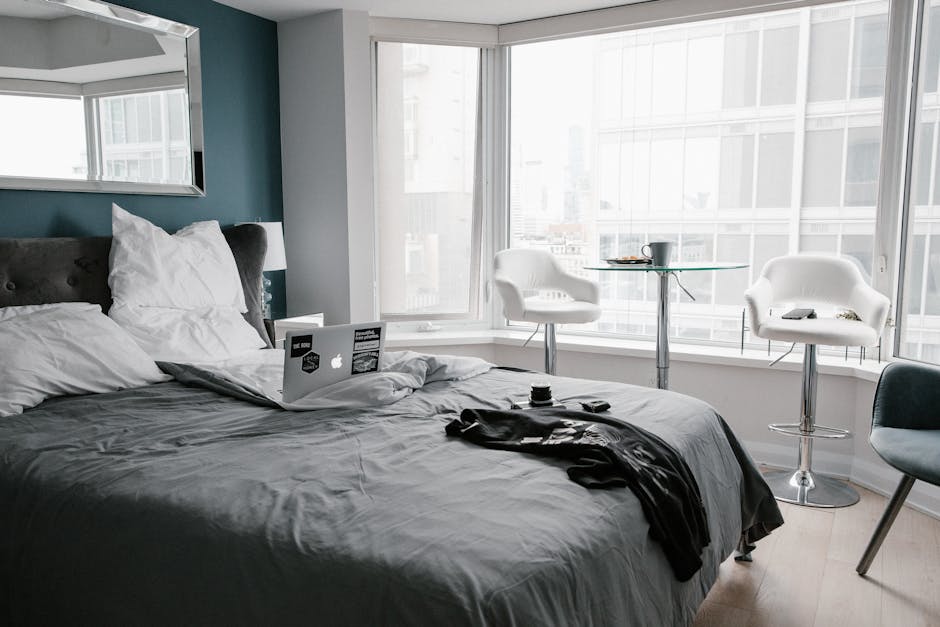Travel accommodations can make or break your trip, and one of the biggest decisions you’ll face is whether to book an Airbnb or a hotel. Both options come with their own set of perks and downsides, and the right choice really depends on your travel style, budget, and expectations. So, let’s break it down in a way that’s easy, relatable, and (hopefully) helpful for your next adventure.
Table of Contents
The Airbnb Experience: Home Away from Home?

Pros:
✅ More Space, More Comfort
If you like to spread out and not feel confined to a single room, Airbnb can be a dream. Many listings offer full apartments or houses, which is great if you’re staying for more than a few days or traveling with a group. You get a kitchen, a living room, and sometimes even a backyard.
✅ Live Like a Local
Want to experience your destination beyond the touristy spots? Airbnb places you right in the heart of local neighborhoods, giving you a more immersive travel experience. You’ll shop at local markets, find hidden cafes, and (hopefully) avoid overpriced tourist traps.
✅ Unique Stays
Ever wanted to sleep in a treehouse, a historic loft, or a beachside villa? Airbnb offers a variety of unique stays that hotels just can’t compete with. Perfect for when you want something a little extra special.
✅ Cost-Effective for Longer Stays
Hotels can get pricey, especially for extended trips. With Airbnb, you can often find better deals on long-term stays, especially if you book well in advance or snag a discounted rate for a week or more.
Cons:
❌ Hidden Fees Add Up
The price you see isn’t always the price you pay. Cleaning fees, service fees, and sometimes even additional charges for basic amenities can quickly turn a budget-friendly stay into something… not so budget-friendly.
❌ Inconsistent Quality
Unlike hotels, where standards are fairly predictable, Airbnbs can be hit or miss. Some hosts go above and beyond, while others barely meet basic expectations. Reviews help, but you’re still rolling the dice.
❌ Less Convenience
Most Airbnbs don’t have 24/7 check-in desks, which means you might be stuck coordinating arrival times or fumbling with lockboxes in the dark. Need fresh towels? You’ll likely have to wash them yourself. Need room service? Nope, not an option.
❌ Risk of Cancellations
Hosts can cancel on you last minute, which can leave you scrambling for a backup plan—often at a higher cost.
The Hotel Experience: Predictable Comfort and Service

Pros:
✅*Reliable and Consistent
Hotels operate under set standards, meaning you generally know what to expect. A three-star hotel will be a three-star hotel, no matter where you are. No surprises.
✅ 24/7 Customer Service
Got a problem? Need an extra pillow? Locked out of your room? Hotels have front desks, housekeeping, and concierge services available around the clock to handle issues quickly.
✅ Daily Housekeeping
No need to worry about tidying up. Your bed is made, fresh towels are provided, and you don’t have to lift a finger. A huge plus if you’re on vacation and don’t want to spend time cleaning up after yourself.
✅ Amenities Galore
Pools, gyms, room service, in-house restaurants, spas—hotels often come with perks that can make your stay feel extra special and convenient. Some even include free breakfast!
✅ No Unexpected Fees
What you see is (mostly) what you pay. Sure, some hotels charge for parking or resort fees, but overall, the pricing is straightforward compared to Airbnb’s unpredictable service fees.
Cons:
❌ More Expensive for Longer Stays
While hotels offer comfort, they can be pricey, especially if you’re staying for a week or more. Even budget hotels can add up quickly when compared to renting an Airbnb for an extended stay.
❌ Smaller Living Space
Most hotel rooms are just that—a room. If you need a kitchen, a separate living area, or extra space to work, a hotel might feel cramped, especially if you’re staying for an extended period.
❌ Limited Local Experience
Hotels are often located in busy tourist areas, which can be convenient but may also keep you from experiencing the authentic, everyday life of a destination. Also, hotel restaurants and bars, while convenient, can be overpriced and lack the charm of a locally-owned café.
❌ Less Flexibility
Hotel check-in and check-out times can be rigid, and requesting special accommodations (like a late check-out) may come with extra fees. You’re also bound by hotel policies that might not suit your personal needs as much as an Airbnb would.
So, Which One’s Right for You?
If you love structure, convenience, and reliability, hotels are probably your best bet. If you prefer a more flexible, immersive experience and want a more “homey” feel, Airbnb could be the way to go.
For short city breaks or work trips? Hotels win for ease and predictability.
For extended stays, group trips, or a unique experience? Airbnb might be the better choice.
Personally, I love mixing it up. If I’m in a city for a couple of nights, I go for a hotel—no stress, no surprises. But if I’m staying somewhere longer or want a more local feel, an Airbnb is my go-to.
At the end of the day, it’s all about what works for you. Just do your research, read reviews, and weigh what’s most important for your trip. No matter what you choose, as long as you have a comfy bed and a solid plan for coffee in the morning, you’ll be just fine. Happy travels!

